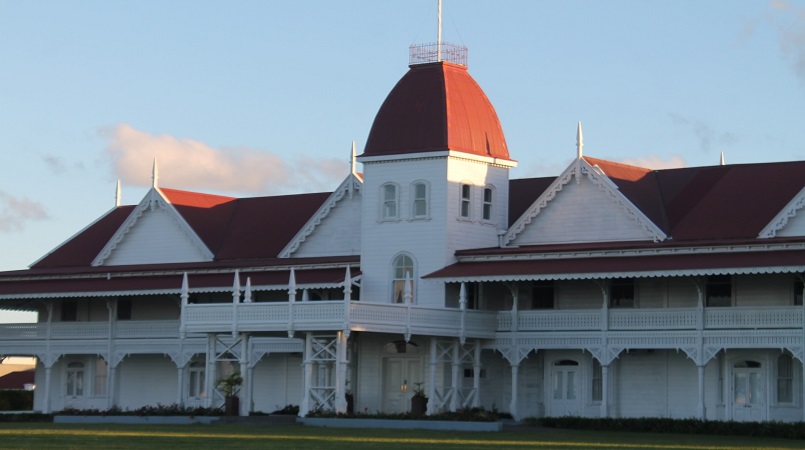
King George V was disappointed when Lord Tu’ivakanō became Prime Minister in 2010, new research has claimed.
In her PhD thesis, Democratisation in Asia – Pacific Monarchies , former New Zealand High Commissioner to Tonga, Christine Bogle, said the king had hoped to see the first election under the new system come up with a commoner as Prime Minister, presumably to give additional legitimacy and democratic credentials to the reforms.
She described the Tu’ivakanō and successive Pōhiva governments as “lacklustre” and subject to unsuccessful attempts at a vote of no confidence in the Prime Minister.
In August 2017, King Tupou VI dissolved parliament and called elections for November 2017 on the basis of a number of concerns about the government expressed by the Speaker.
According to a Kaniva News report, Bogle described the king’s actions as “constitutional, but hardly democratic.”
Australia and New Zealand
In her thesis, Bogle highlighted the role of younger members of the royal family in pushing for the democratic reforms that were finally brought to fruition in 2010.
However, she also said Australia and New Zealand actively supported the slow move towards democracy at the beginning of the century.
Australia and New Zealand provided consistent support for political reform from the time Tonga announced its decision in 2005 to launch the National Committee for Political and Constitutional Reform.
While open promotion of democratic reform was not welcomed by Tongan authorities in the early part of the 21st century, years of exposure to Australia’s and New Zealand’s democracies had its effect.
Those countries encouraged human rights-focused NGOs within Tonga, as well as helping pay judges’ salaries over a number of years.
During this period Prince Tu’ipelehake emerged as a champion of political reform.
He kept in regular contact with New Zealand, Australian and UK diplomats. The prince wrote formally to Australian Foreign Minister Alexander Downer stating that Tonga needed both political and economic reform together, as they would “complement each other.”
He argued that “with the encouragement from the Australian government and the governments in the Commonwealth, the Tongan government may be persuaded to implement the necessary political reforms.”
Following the public service strike in 2005, the Tongan government agreed to Prince Tu’ipelehake’s proposal for a national consultative process on political reform.
Bogle said this provided an opportunity for New Zealand and Australia to support Tonga’s decision to democratise. Australia and New Zealand also helped fund the subsequent Constitutional and Electoral Commission.
“Tonga’s international environment has encouraged, rather than impeded, its transition to democracy, although Tonga has always proudly insisted on doing things on its own terms and following its own timetable,” she said.
